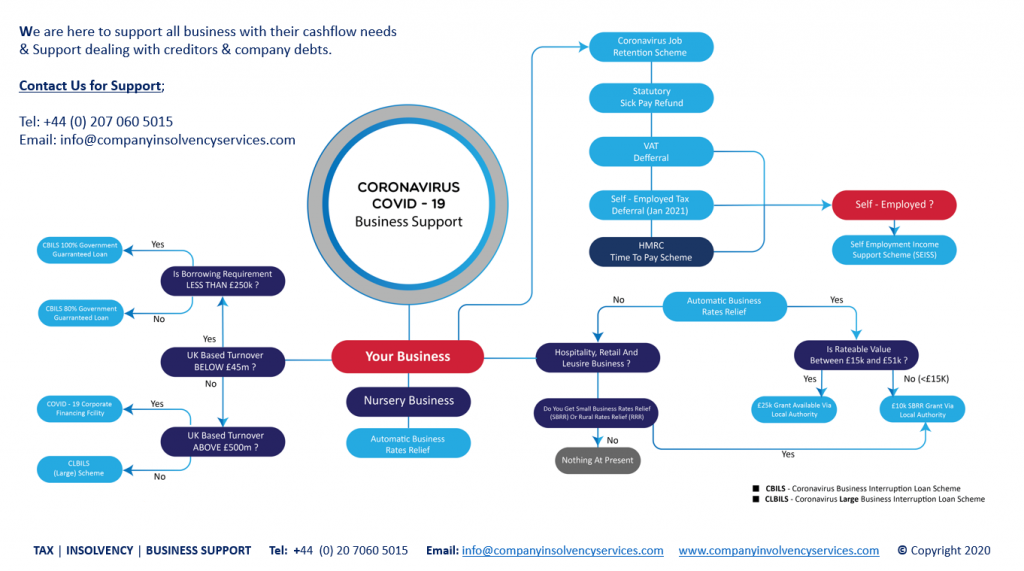Insolvency is the inability of a debtor to pay its debts. A person or business is insolvent when their total debt is greater than the sum of their total assets and their income. This usually happens when an individual has significant debt they cannot repay and there are not sufficient liquid (cash) assets to compensate for this debt. Insolvency can be treated seriously by creditors who will attempt to recover the money owed before it becomes even more un-repayable through increased borrowing costs, increased interest rates on existing debts and direct legal action. Businesses also need to take insolvency issues seriously as failure to do so can result in their own bankruptcy.
There are a number of formal insolvency procedures available to creditors when it appears that an individual has limited or no assets. The options depend on how much money is owed, whether there are any owners who may be able to contribute towards the debt, and what type of business structure exists. There are two main types of insolvency which can occur for individuals: bankruptcy and personal insolvency agreements (PIAs), with both having serious consequences for individual bankrupts.
Bankruptcy is where your property including your house is used up to pay off your debts. Personal Insolvency Agreements (PIA) allows individuals to pay back what they can afford over 5 years depending on their income, usually without selling any assets. Personal Insolvency Arrangements are alternatives to bankruptcy for individuals who can afford pay back what they can afford over 5 years depending on their income using the PIA Trustee.
Insolvency vs Bankruptcy
There are many differences between insolvency and bankruptcy. The main difference is that with insolvency, an individual can manage their own affairs without the supervision of creditors whereas in bankruptcy, an individual cannot. Insolvency is also a financially driven process whereas bankruptcy is a legal one. Bankruptcy is considered to be more serious than personal insolvency arrangements as the law assumes individuals who declare themselves bankrupt do not have any other option but to surrender their property to pay off their debt whereas those who make a pact with their creditors are assumed to have made every attempt at coming to some arrangement prior to declaring themselves bankrupt.
Bankrupts must obtain permission from creditors before they purchase anything of value for example; they may need court permission to make a significant purchase such as a car or boat, take overseas holidays and they will be unable to get credit for five years. In contrast, PIA bankrupts can make all these purchases without obtaining permission from creditors or the PIA Trustee, but only if they do not exceed their means.
Many insolvency practitioners also view bankruptcy as a last resort whereas personal insolvency agreements are seen as a more desirable option due to the greater freedom of PIA bankrupts. Finally, bankruptcy has stricter criteria that have to be met before being declared while it is easier for individuals to become PIA bankrupts than it is for them to go through the bankruptcy process.
When Does Insolvency Arise?
Insolvency arises when a debtor has debts that exceed his or her assets. If the value of an individual’s assets is less than their liabilities, they are insolvent and he or she may be placed under a personal insolvency agreement or bankruptcy proceedings depending on the circumstances. The main types of insolvencies include: bankruptcy, liquidation, receivership and administration. These options differ based on how much money is owed by an individual to creditors and what type of business structure exists for the debtor company.
What Happens When you go Into Insolvency?
If your company is insolvent or likely to become insolvent, the Court may appoint a liquidator (also known as an Official Assignee (OA)) to take control of your company’s assets and try to sell them in order to repay creditors. The second option is a personal Insolvency Agreement that can be completed through a registered PIA Trustee.
How Does Insolvency Affect Company Directors?
Insolvency can also affect the directors of companies, even if they are not personally liable for any debts. If a company goes insolvent and cannot repay its creditors (including employees and ACC), there is a risk that individual directors may be held accountable and the director’s personal assets may be repossessed or liquidated to pay off debt owed by the company. For this reason, it is important for business owners to seek advice on how best to protect themselves from being held personally liable for their company’s debt.
Does Insolvency Affect Your Credit Rating?
Both types of insolvencies will have an impact on credit ratings, but bankruptcy normally has a more significant impact than Personal Insolvency Agreements. Insolvency may be recorded against any judgment debtor by the Register of Judgments, Orders and Fines or can be listed with credit agencies so that anyone doing a credit check on you will see the listing. Many financial institutions are required to list bankrupts who have had an IVA or bankruptcy discharged so they are prevented from being able to do new business with them.
What are the Consequences if You Do Not Comply?
If someone doesn’t comply with their repayment plan after having entered into a PIA, then there may be consequences for them. This is why it is important to seek professional legal advice before entering into a PIA Agreement.
What are Insolvency Proceedings?
Insolvency proceedings are also known as ‘liquidation’ or ‘winding up’. This usually happens when a company is unable to pay its bills and goes into receivership. With this process, the court appoints an official liquidator (or OA) who will take control of the company’s assets until they are sold. The money raised through selling any debtors or creditors is paid out to shareholders. If there is anything left over after all debts have been covered then it can be returned back to shareholders in proportion with their capital contributions.
Need further help?
If you are unsure how this process works, or if you have any concerns about what your company’s future is likely to be, don’t hesitate to get in touch with the team today on +44 (0) 20 7060 5015 or email us @info@companyinsolvencyservices.com




